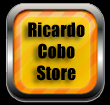Las Vegas Sun
Colombian leads musical journey across Latin America
Given today’s climate – when Hispanic in many people’s minds means “Mexican” and Mexican means “illegal” – Colombian guitarist Ricardo Cobo’s sold-out concert Tuesday night at UNLV’s Doc Rando Hall somehow acquired added meaning.
Not that Cobo crafted his nearly all-Latin American program with any stated political intent.
But cultural displays from an artist with the talent and sensibility of the sort Cobo possesses have a way of making a point sometimes, beyond the beauty of the displays themselves.
Cobo – who left his native city of Cali as a teenager and became the first Hispanic to win consecutive prizes at the Guitar Foundation of America International competition – comfortably engaged an audience of 300 on a musical trip from Brazil up to Cuba, with stops in Argentina, Paraguay and Venezuela, and a side trip to France.
The guitarist, who has lived in Las Vegas since 2000, visits his tropical valley birthplace when he can and spends six months a year on the world’s classical music stages. It’s a life that adds up to a performer and person who breathes both U.S. and Latin cultures , and is expert at bridging the two.
From the start, Cobo dipped into the Latin American grab bag of intense emotions, with a lyrical piece by Cuban composer Leo Brouwer that he reprised at the end of the concert, dedicated to his father.
Then he switched things up, announcing, “We’re going to start the dancing part early,” with a fast tune from the Venezuelan plains written for harp. The speed challenged Cobo at times, but the rhythmic force of the piece carried him forward.
Before lovingly launching into “Dos Valsas,” two pretty pieces by Brazilian composer Dilermando Reis, Cobo told the audience they were about to hear “high-class schmaltz.”
He knows how north-of-the-border eyes see the romance in Latin lives.
Then, without being pedantic, he added, “This was before bossa nova, before samba.”
About to tackle Argentine Maximo Diego Pujol’s homage to his radical compatriot, Astor Piazzolla, Cobo noted: “If you don’t know his (Piazzolla’s) music, you’re missing a whole universe of music in the 20th century.”
His right hand, relaxed as a tai chi master, strummed and slapped through the Argentine avant-garde, strongly displaying that country’s melancolia.
After the intermission, Cobo stopped in Cuba with a modern piece by Eduardo Martin that somehow manages to fit the head-bopping Cuban dance rhythm, son guajira, under the same musical roof as dense, contemporary classical flourishes.
“A lot of unusual things have come out of Cuba,” Cobo said before playing the piece, “but we never hear of it.”
After the song, he riffed, “You gotta love the Cubans. Rock ‘n’ roll, blues and all of the above.”
More bridges built.
The rest of the program featured three tangos, all Cobo’s arrangements – including an impressive musical wrestling match with the difficult maestro himself, Piazzolla.
Dressed in black and equally modest in character, Cobo called the piece “a little more virtuosic” than the rest.
But though he had no problem with the technical demands of the complexly urban but lyrical composer, what most reached the listener was Cobo’s feeling for the music.
It was clear the music Cobo played for a full house, from the rich and immensely varied continent of his birth, is in his blood.
And his hands.





